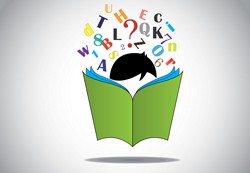
Orthographic processing is the ability to recognize spelling patterns, understand spelling and punctuation rules, and recall letters and words in sequence. Children with difficulties in this area often over-rely on sounding out words, thereby impacting their fluency, and written expression. Difficulty in orthographic processing can also lead to letter reversals, and difficulty discriminating between similar looking letters and/or numbers. Further, difficulty with orthographic processing has been tied to poor handwriting skills. Research suggests that difficulties in orthographic processing most impacts basic reading skills.
There are many different types of tools to measure the area of orthographic processing. After collecting data from a child’s teacher, and parents, and reviewing work samples to identify patterns that might indicate a difficulty with orthographic processing, standardized tools can be administered to measure skills in rapid automatic naming, phonological awareness, spelling, reading fluency, visual memory, and more.
Once a difficulty in orthographic processing has been identified, what can be done about it? Research suggests that encouraging children to read whole words as opposed to sounding out each sound can is most beneficial towards improving their fluency. Providing extra practice in memorizing sight words in general is important, but especially with high frequency irregular words. Finally, directly teaching conventional spelling rules, common letter sequences, and orthographic rules is crucial for children with difficulty in the area of orthographic processing.